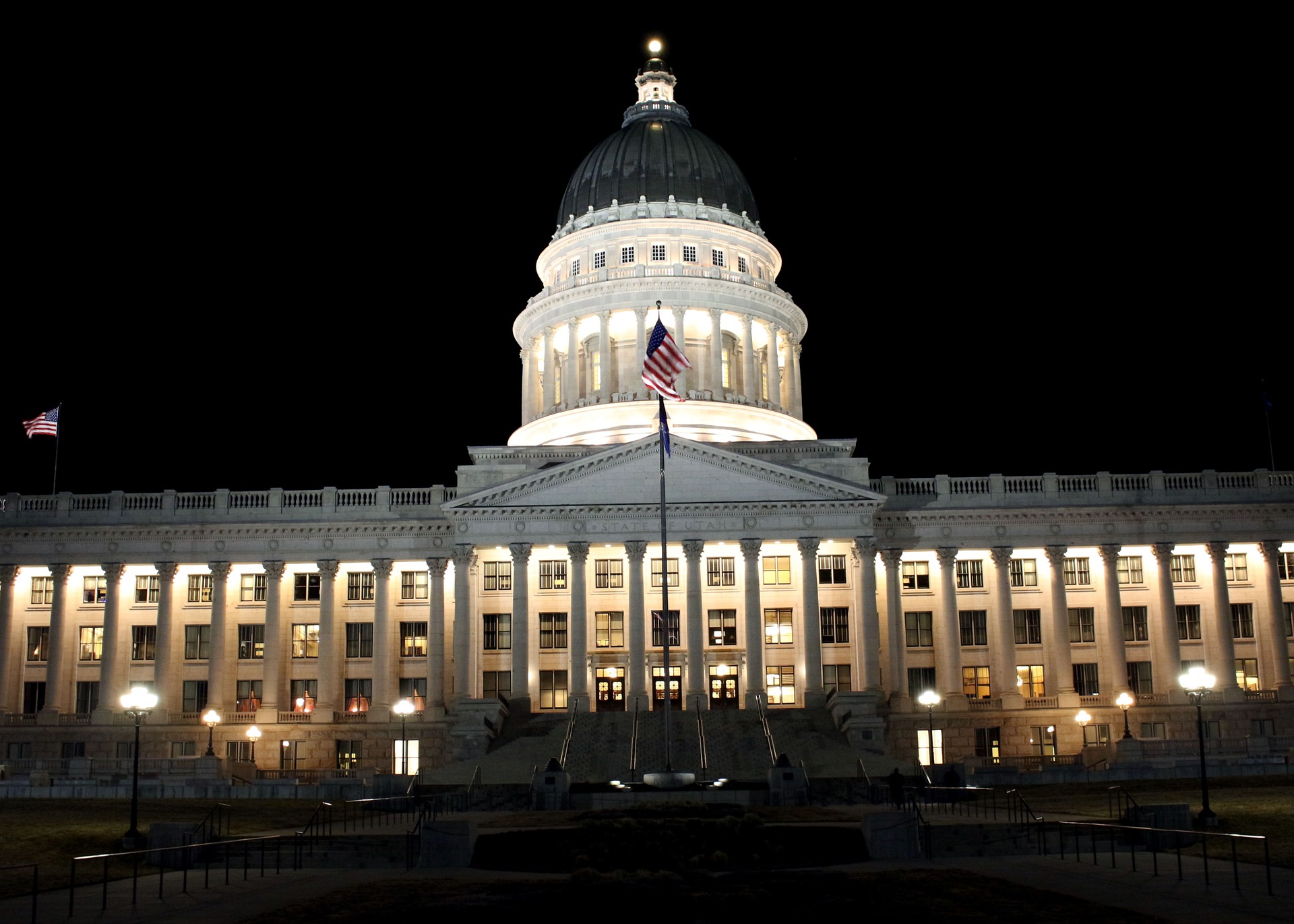
The Right to an Organic Diet of the Man Who Attacked Our Organ of Government
Matthew P. Cavedon
Image by Sage Scott from Pixabay.
This article is part of our “Chaos at the Capitol: Law and Religion Perspectives on Democracy’s Dark Day” series.
If you’d like to check out other articles in this series, click here.
A mob stormed the U.S. Capitol on January 6. Perhaps its most visible leader was a man wearing a bearskin headdress, Viking horns, and red, white, and blue face paint. And wielding a spear. Arrested in Arizona on January 9, Jacob Chansley, a.k.a. “Jake Angeli,” also goes by the title “QAnon Shaman.” This is no idle nickname. He is the founder of the “Star Seed Academy — the Enlightenment and Ascension Mystery School,” a ceremonial user of mushrooms and peyote, and a man who reports “endless of hours in deep trance states and meditation” (sic). He identifies as “a metaphysical warrior, a compassionate healer and a servant of the Divine Creator God.” His tattoos have connections to ancient Norse religion (and, possibly, far-right political movements as well).
True to his mystical side, Mr. Chansley is apparently already raising religious issues in court. He spent the first three days of his incarceration without eating. He did so because his jailers were not serving him organic food. His reasons for not taking synthetic sustenance are not entirely clear. His mother reported that he has health difficulties. Other sources said that his reasons were religious. Either way, the situation troubled federal Magistrate Judge Deborah Fine. She ordered the U.S. Marshal to accommodate Mr. Chansley’s dietary needs. Law enforcement said that they would comply.
This decision met with some derision. One major tabloid called Mr. Chansley the “Snowflake Shaman.” But if there is indeed a religious element to his diet, then he stands on strong legal ground. The very Congress Mr. Chansley attacked enacted the Religious Land Use and Institutionalized Persons Act (RLUIPA) in 2000. It generally bars American governments from “impos[ing] a substantial burden on the religious exercise of a person residing in or confined to an institution.” The only time governments can restrict inmates’ religious liberty is when they do so in pursuit of a “compelling governmental interest.” Moreover, there must be no less-restrictive way for them to further that interest. This is a tough test for a restriction to pass. It is very rare for a prison’s compelling interests – like the security of inmates and staff – to be furthered by making everyone eat the same “three hot” every day. Even if they can be, there are almost always ways to achieve those goals through other means.
If there is indeed a religious element to his diet, then Mr. Chansley stands on strong legal ground.
For these reasons, restrictions on religious diets regularly fall to RLUIPA scrutiny. Successful lawsuits challenging dietary limits have been brought by the U.S. Department of Justice – the agency now prosecuting Mr. Chansley. The feds boast of having convinced a Utah prison to provide vegetarian meals for a Hindu inmate. The Department also won litigation forcing Florida to give Jewish prisoners kosher meals. These cases are no outliers. The U.S. Supreme Court has observed that diet disputes were part of Congress’s rationale for enacting RLUIPA. Problems that legislative hearings uncovered included prison officials giving kosher meals to Jewish inmates, but denying halal ones to Muslims. Another correctional system considered a well-balanced kosher diet to mean “a fruit, a vegetable, a granola bar, and a liquid nutritional supplement — each and every meal.” Congress passed RLUIPA with abuses like these in mind.
Jewish, Muslim, and Hindu dietary restrictions may be well-known to Congress and the public. But the peculiarity of Mr. Chansley’s beliefs will not hinder him from asserting his rights. Followers of minority religions brought the very first RLUIPA case to reach the U.S. Supreme Court, Cutter v. Wilkinson. There, a coalition of Satanists, Wiccans, adherents of Asatru, and members of a white supremacist church claimed that Ohio prison officials violated their rights while imprisoning them. Based on the parties’ agreement, the Court easily found the plaintiffs sincere in their beliefs, and so held that they were protected by the statute.
Holdings like this have secured the right to quirky religious diets. Less than two years ago, the Second Circuit held that New York prison officials violated the RLUIPA rights of a Nazarite Jewish man. His diet required him to eat “a grape free, egg free, vegetarian kosher diet.” He also had dairy intolerance. The prison impermissibly burdened his religious practice when it swapped out meat for the cheese in his standard diet and grape jelly for his cream cheese. In a similar ruling, the Seventh Circuit, in an opinion by then-Chief Judge Easterbrook, upheld the rights of a member of the Moorish Science Temple, a small Black nationalist religion. His claim was perhaps even more idiosyncratic than that of the Nazarite Jew. He wanted a vegan diet, whereas other practitioners of his religion only require food without pork in it. This had no impact on his claim. Held the Court: “A personal religious faith is entitled to as much protection as one espoused by an organized group.”
It is possible that no one shares all of Mr. Chansley’s religious practices. If his comrades from the Capitol are any indication of the company he generally keeps, he may at least be bereft of any organized spiritual fellowship. Nevertheless, if he can articulate religious reasons for an organic diet, his jailers will almost certainly have to give him one.
Irony abounds. His right to an organic diet is protected by law because of the very legislative organ he assaulted. That right is only fully baked because of the hard work of the U.S. Department of Justice – which now prosecutes him.
Sometimes, though, that’s the way the keto cookie crumbles. ♦

Matthew P. Cavedon is a criminal defense attorney in Gainesville, GA. He graduated from Emory University in 2015 with a law degree and masters of theological studies.
Recommended Citation
Cavedon, Matthew P. “The Right to an Organic Diet of the Man Who Attacked Our Organ of Government.” Canopy Forum, January 21, 2020. https://canopyforum.org/2021/01/21/the-right-to-an-organic-diet-of-the-man-who-attacked-our-organ-of-government/

